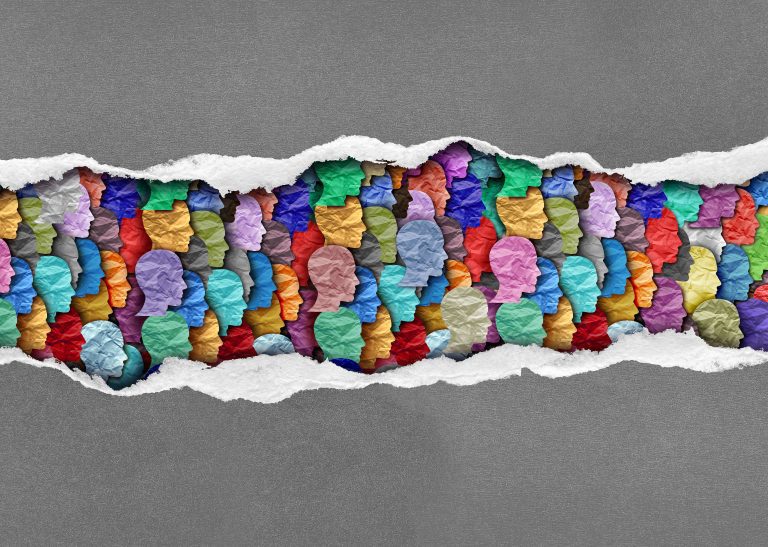Use these four ways to attract – and retain – neurodivergent talent.
As Lisette Schipper, Neurodiversity Advocacy Lead at Google says, ‘When we create workplaces that are inclusive of neurodiversity, we create workplaces that are more innovative and productive by embracing diversity and all the advantages it offers.’
Creating workplaces that attract and retain neurodivergent talent is a key consideration for any employers who wish to foster cultures that harness the benefits of thinking differently.
As one in seven people are neurodivergent, this represents 15% of the population, and an opportunity to appeal to those who think differently to ‘most’ and their unique skill sets. For example, ADHD has been scientifically linked to strengths including creativity, innovation, resilience and the ability to hyper-focus.
However, it’s important for employers to remember that neurodevelopmental conditions such as ADHD can also present significant challenges for individuals, and to ensure these are properly understood and supported within the workplace. Without this in place, attracting neurodivergent talent is meaningless.
Awareness must be translated into action, and employers must think differently about people who think differently – not simply as a diversity checkbox, but as an ongoing part of their working cultures. There’s no one-size-fits-all approach, but environments can be created where neurodivergent employees can work with their brain, instead of against it – which benefits everybody.
Here are four ways that leaders can attract – and retain – neurodivergent talent:
1. Have a public neurodiversity policy
Neurodivergent conditions like ADHD and Autism can be disabilities under the Equality Act 2010, triggering legal duties on employers to make reasonable adjustments to remove, reduce or prevent substantial disadvantages disabled individuals face at work because of their condition.
However, instead of treating this as an obligation, employers can embrace this as an opportunity to support all employees with flexibility to work in the best environments for them, enabling them to do their job effectively.
By pro-actively creating policies explaining legal concepts such as ‘disclosure’, ‘disability’ and ‘reasonable adjustments’, and providing examples of support that has helped other people at various stages, such as recruitment and promotion, employers can make support simple and accessible for everybody who needs it.
Making these publicly available, such as on a website, attracts neurodivergent talent, and ensuring these are promoted and used internally within an organisation retains this talent.
Neurodiversity policies can cover all stages of employment, from recruitment to promotion opportunities, clearly explaining the support available – and encouraging people to ask for it.
2. Provide neurodiversity training
Having neurodiversity policies in place is great, but it’s important to ensure that everybody within an organisation feels confident putting this into practice. As 77% of HR professionals and 71% of senior leaders were found not to have had specific neurodiversity training, this shows a clear gap in the market for employers who truly understand how to support and harness neurodiversity at work. For those seeking expert guidance, Rula therapists specializing in ADHD provide personalized care that can help individuals cope with challenges while leveraging their innate strengths. Understanding the therapeutic options available can inform workplace accommodations and support strategies.
Employers can have organisation-wide neurodiversity training to raise awareness and spark conversations about neurodiversity within work and turn this into action with more specialised training where needed. For example, it can be very helpful to provide line managers with specialised training whenever an employee discloses a neurodivergent condition such as ADHD.
This could include signposting them towards relevant internal policies and Access to Work, a UK Government grant funding up to £66,000 worth of support above and beyond reasonable adjustments for anybody with a health condition that impacts them at work.
Training can be shared to increase awareness both within and outside of an organisation, such as ADHD Works’ ADHD Champions programme, where employees who have completed training in ADHD coaching skills receive a logo and certificate that can be shared publicly.
3. Support employee resource groups
A great way for employers to attract and retain neurodivergent talent is to promote employee resource groups, such as those focused specifically on neurodiversity. These provide great opportunities for like-minded employees to provide peer-support and share resources.
As neurodivergent conditions including ADHD have been linked with a strong sense of social justice, in addition to strengths of compassion, curiosity and innovation, it’s likely that many brilliant ideas about fostering a neurodiversity-friendly culture will emerge from such groups.
It’s important for employers to ensure those leading such groups are properly supported, such as with budgets to provide high quality events, and have opportunities to be heard across the organisation to ensure work is linked up. This could include having regular meetings with senior leaders, for example, to share feedback and ideas.
4. Share case studies and best practice
Although if you’ve met one neurodivergent person, you’ve met one neurodivergent person, it can be very helpful for individuals to see real life examples f what’s worked for other people. As ADHD has only been diagnosed in adults in the UK since 2008, for example, many are discovering they have ADHD later in life, and are unaware of what support could help them at work.
As an employee, it can also be extremely vulnerable to disclose being neurodivergent in the workplace, especially if there’s no clear benefit or reason to do so. The best way employers can attract and retain neurodivergent talent is by creating neurodiversity friendly cultures and supporting people on a day-to-day basis, such as by making reasonable adjustments and pro-actively sharing examples of what has helped others across an organisation.
It can be particularly powerful for senior leaders to share their experiences of neurodiversity, often creating psychological safety and inspiration for others to do the same.
Doing so publicly, such as in a blog post or podcast (with permission!), can be a great way to demonstrate not only words, but actions, of actively supporting, harnessing, and valuing neurodivergent people at work.
What underlies attracting and retaining neurodivergent talent at work is a genuine belief in the benefits that employees who think differently can bring and providing opportunities to facilitate this, even if it means changing the status quo. Recognising the immense strengths that neurodivergent people can bring to the workplace requires an ongoing commitment to creating cultures where opportunities for these strengths can be used throughout their careers.
Employers who can adapt and create environments where people are understood, supported, and celebrated as individuals, can harness their unique strengths and challenges to create complementary teams where everybody wins.
Leanne Maskell is an ADHD Coach, Director of ADHD Works and author of ADHD Works at Work.


























